In this guide, you will learn how to purposefully use code-blocks and scopes in Java. The knowledge from the first part of the tutorial on scopes will be further deepened here. You will understand how different variables are defined within various blocks and what access rights you have in doing so.
Key Insights
- Scopes are crucial for managing variables in Java.
- Anonymous blocks allow for the creation of local scopes.
- It is important to consider the type of variables to perform calculations correctly.
Step-by-Step Guide
Defining a Code Block
To create a new scope, you can define a block within a method.
Here is a simple example of an anonymous block that you can create within a method. This block can contain multiple local variables.
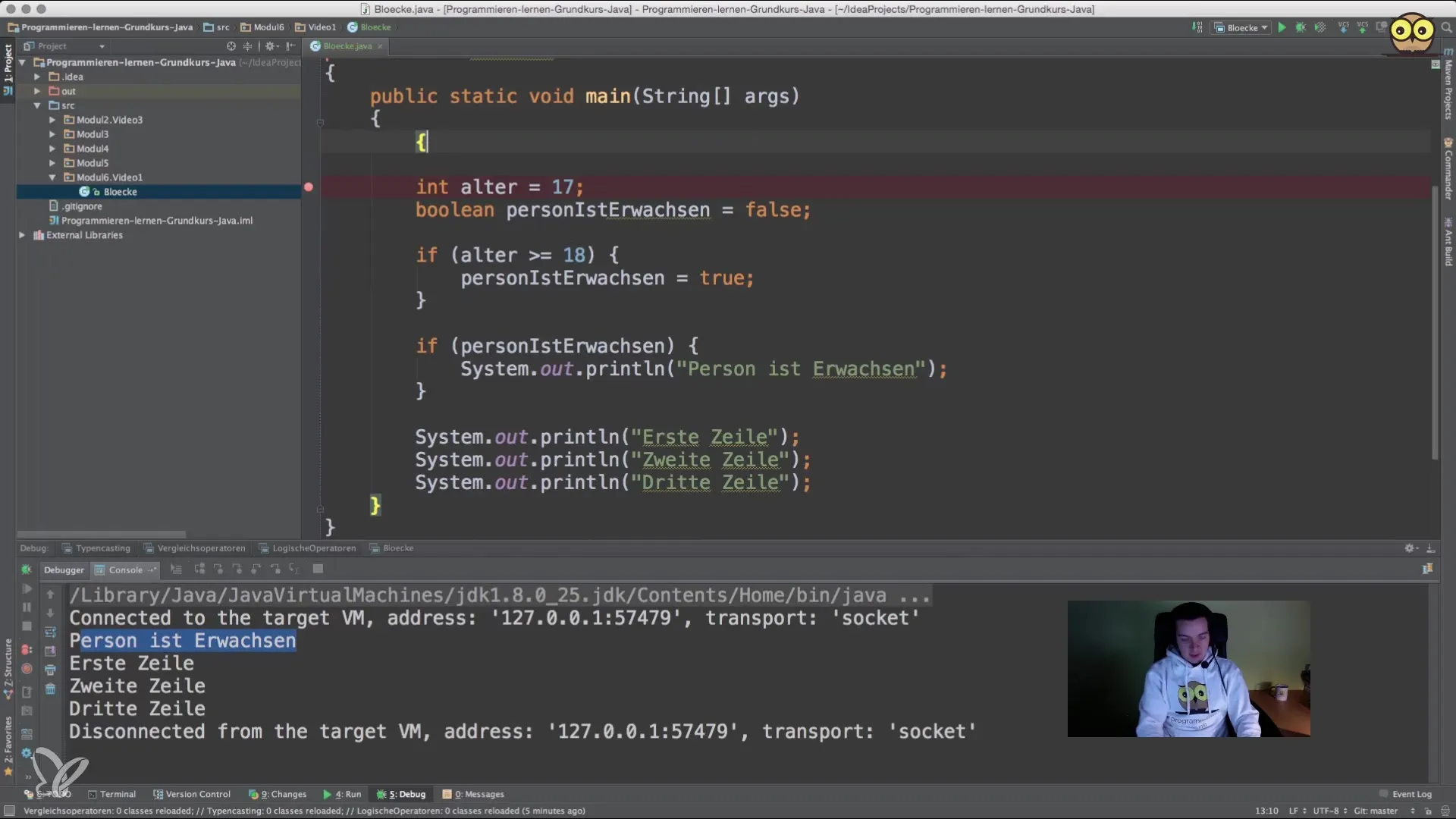
Implementation and Calculation in the Block
Within the block, you define variables that are only valid in this block. Let’s perform a calculation and display the results.
These variables are only visible within this block. You can perform calculations with them.
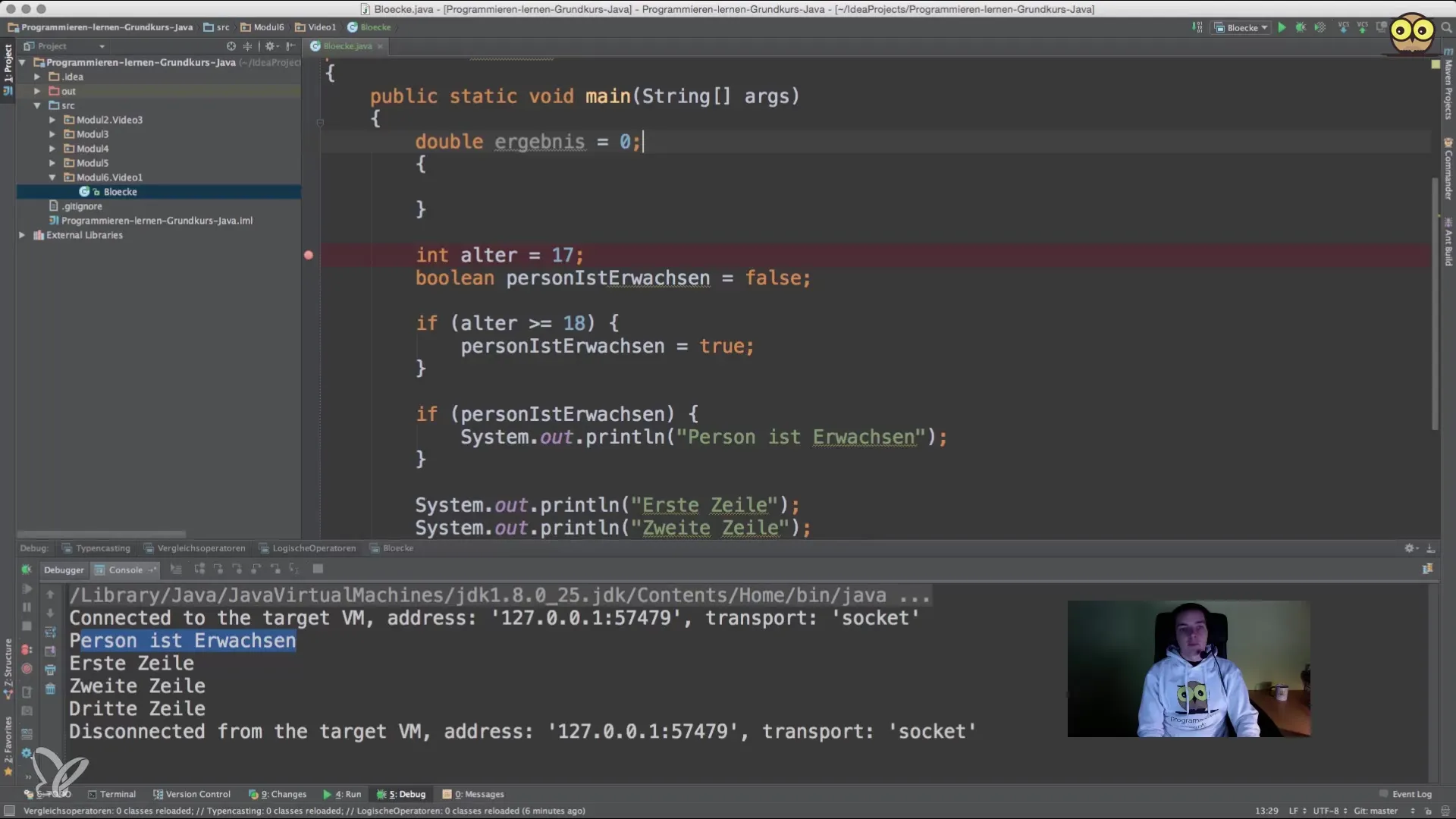
Accessing Variables in the Parent Block
You can also use variables defined in the parent block within the inner block.
This way, the inner block allows calculations with variables from the outer scope.
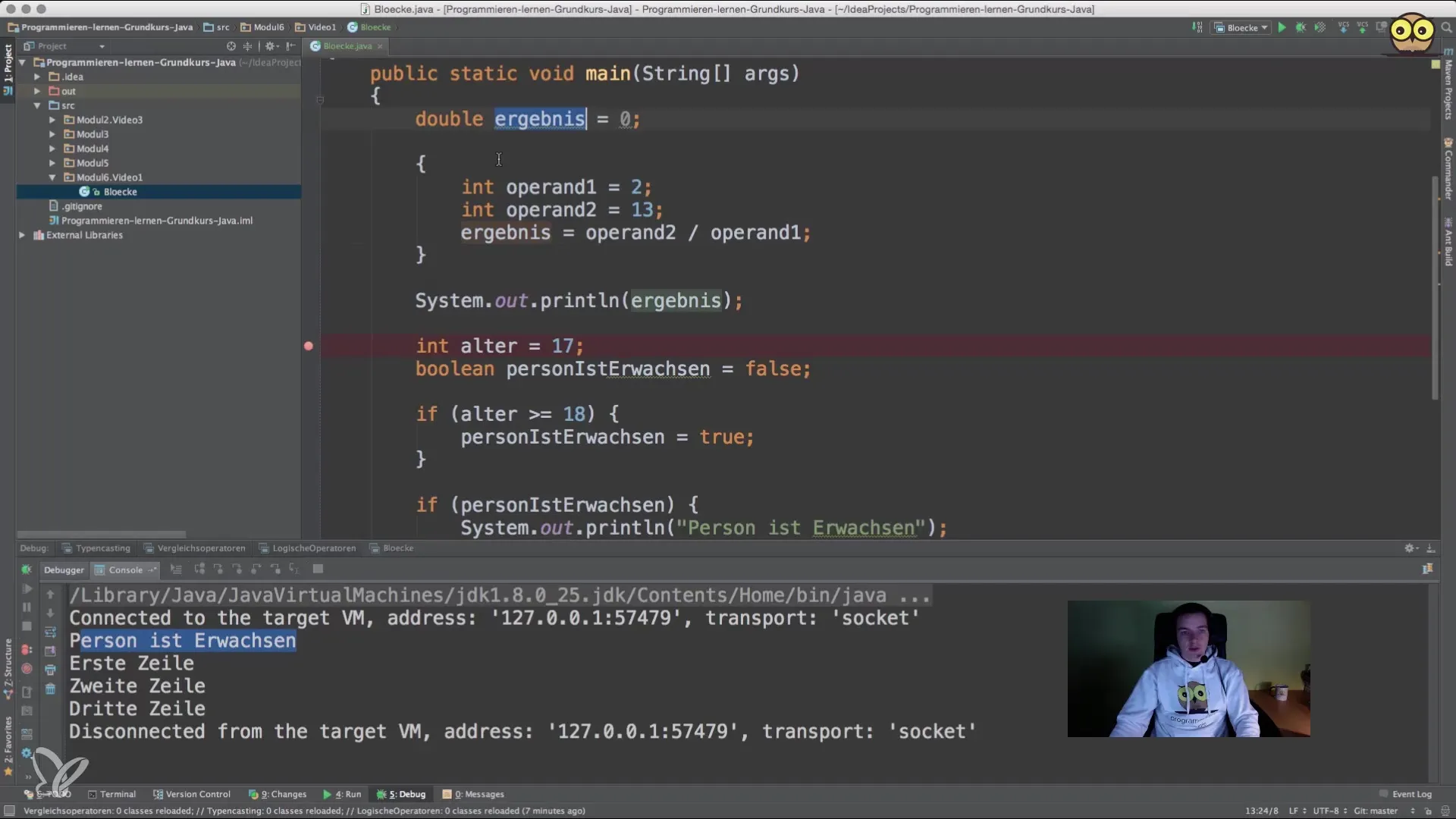
Type Checking in Calculations
Note that the type of the variable is crucial for the result. In Java, dividing two integers also returns an integer result.
This is also the key to solving the problem you want to avoid: the correct use of data types.
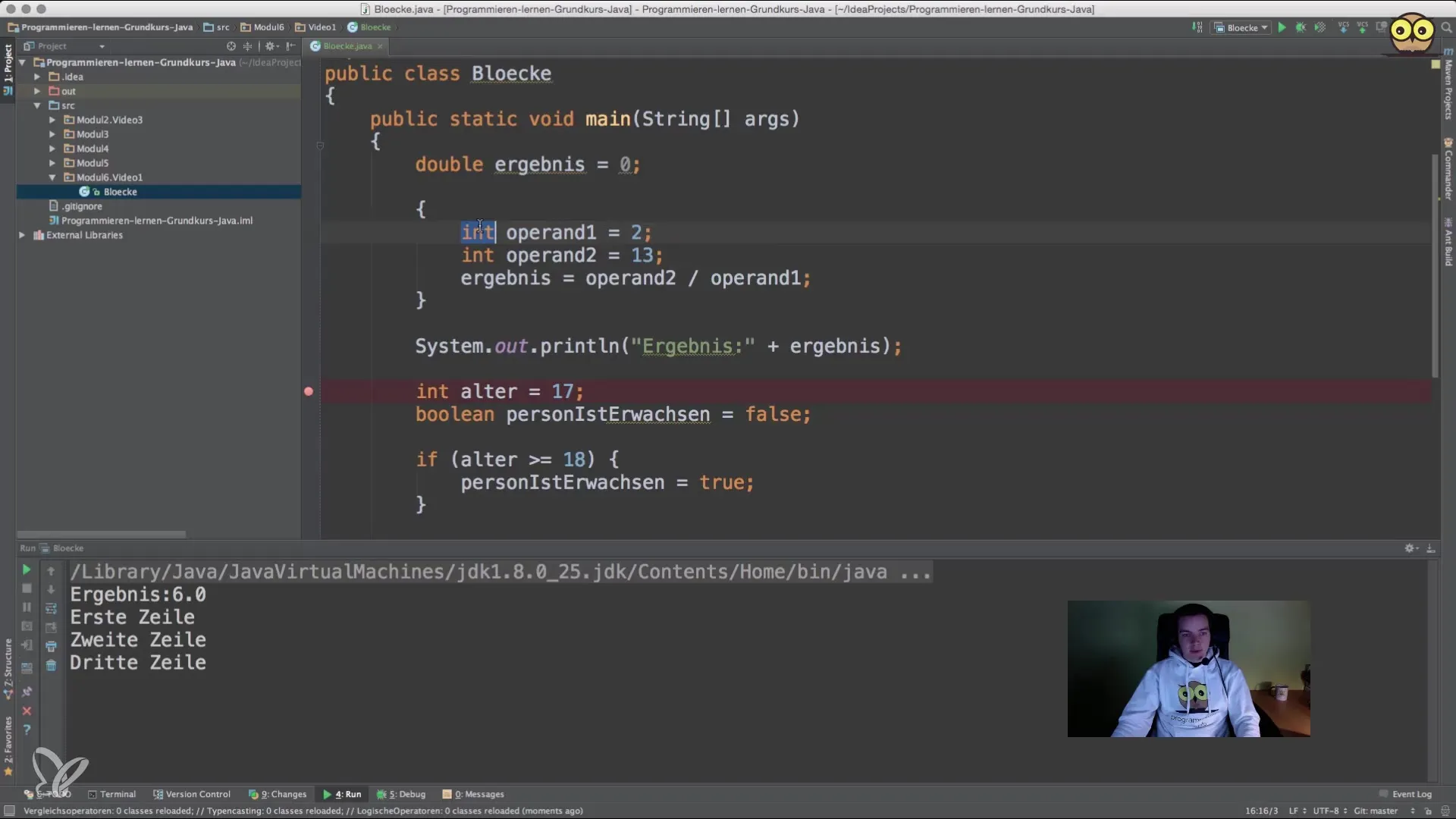
Adhering to Code Style and Structure
Clear and readable code is important. The IDE automatically indents code within a block, making the hierarchy visible. You should pay attention to consistent indentation to further enhance readability.
Using Nested Code Blocks
In Java, you can define additional blocks within a block, allowing for a hierarchical structure.
The variables defined in an inner block are not visible outside this block, making the scope robust.
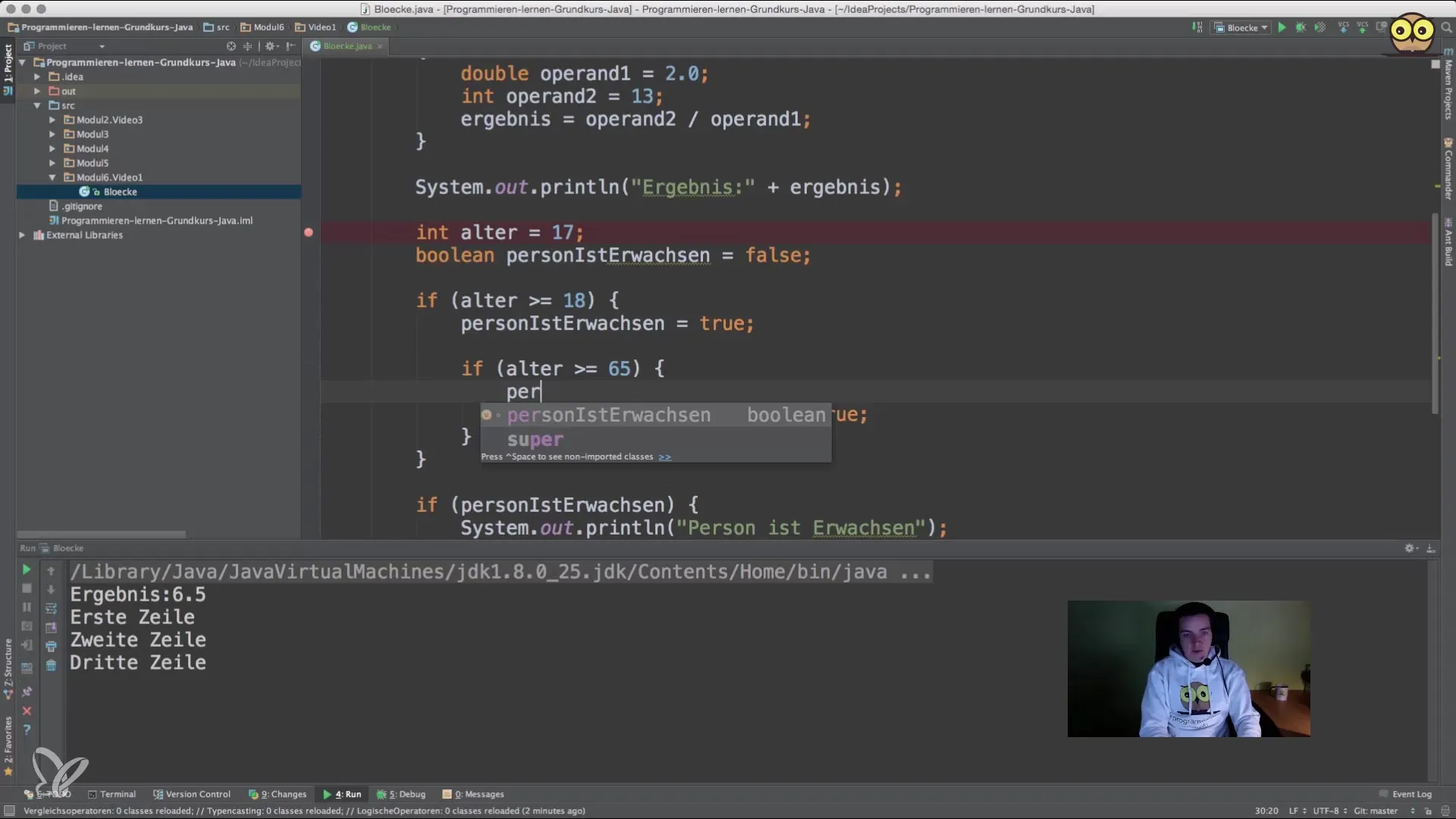
Conclusion on How Scopes Work in Java
With the techniques mentioned above, you can work more effectively with scopes and code blocks in Java. It is helpful to experiment with your own examples to develop a feel for the visibility and access rights of variables.
Summary – Understanding Java Scopes and Code Blocks: A Step-by-Step Guide
This guide has explained the basics of using code blocks and scopes in Java. You have learned how to declare and manage local variables as well as the importance of different data types in calculations.
Frequently Asked Questions
How do I define a local scope in Java?You define a local scope by writing code inside curly braces {}.
Can I access variables in parent blocks from an inner block?Yes, you can access variables in the parent block as long as they are defined in that block.
Why is the data type important in calculations?The data type determines the result of a calculation; integers lead to integer results.


